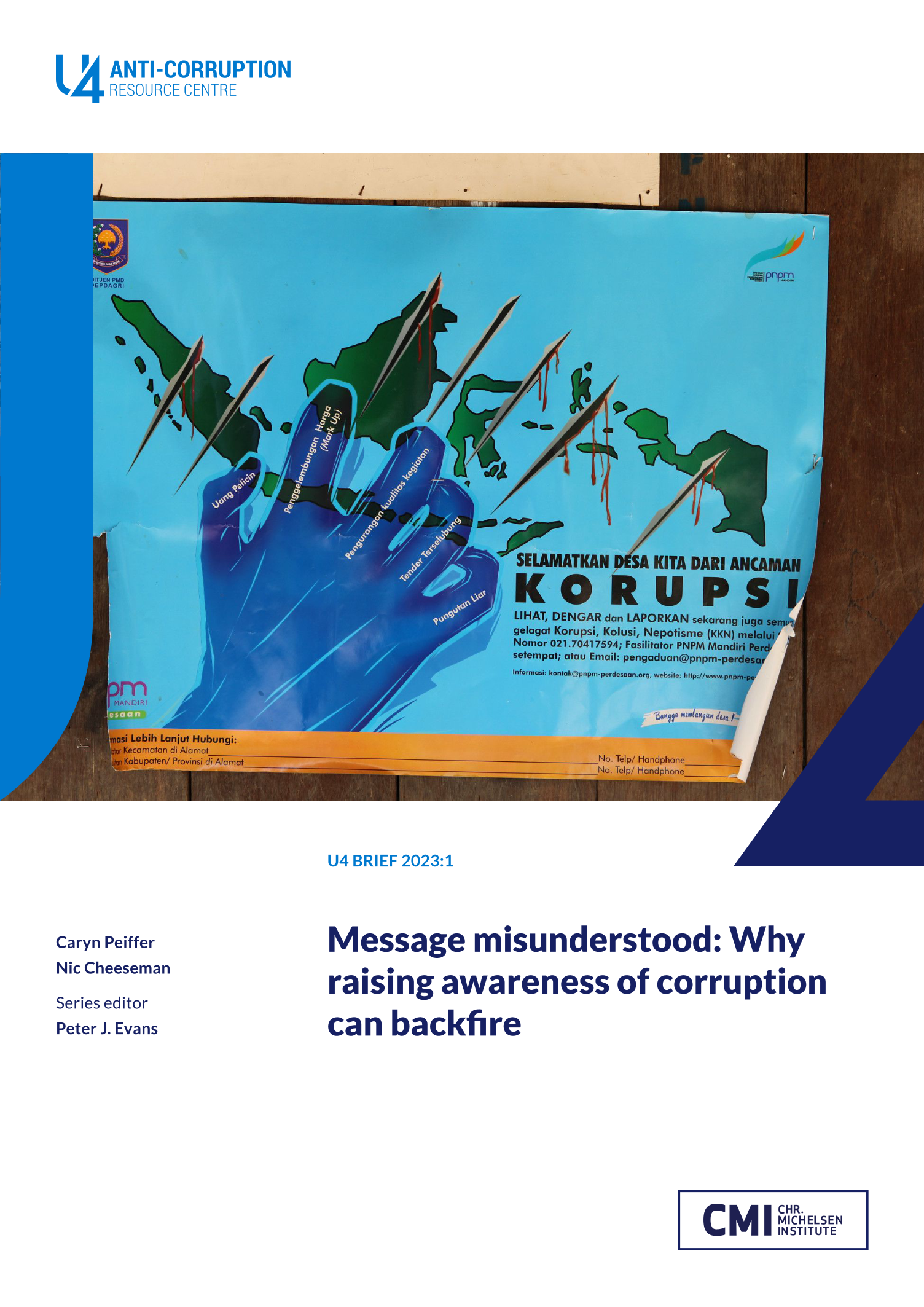Main points
- A growing body of research has examined the effectiveness of anti-corruption awareness raising messaging.
- Research has shown that messaging focused on the scale and consequences of corruption is especially prone to ‘backfire’ by reinforcing beliefs that the problem is too big to solve.
- Even ‘upbeat’ messaging emphasising progress made in controlling corruption has been found to make the situation worse, suggesting that a range of anti-corruption awareness raising communication may do more harm than good.
- Many studies have also found that a variety of messages have no impact, suggesting that awareness raising efforts risk wasting resources.
- The only way to make sure that anti-corruption communication campaigns avoid wasting money or backfiring is to test their impact on a sample of the target audience before they are communicated to the wider public.
- Pre-deployment testing must be experimental. Only experimental tests provide a systematic estimate of the effect of exposure to messages.
- This kind of pre-deployment message testing should be standard when developing anti-corruption awareness raising campaigns.


